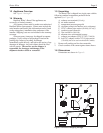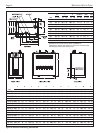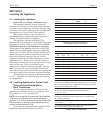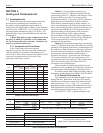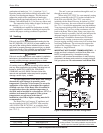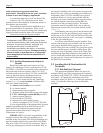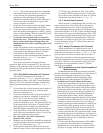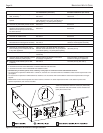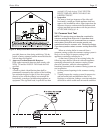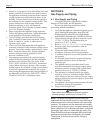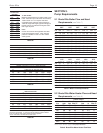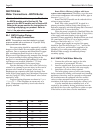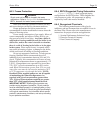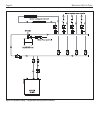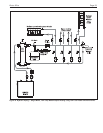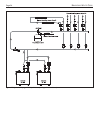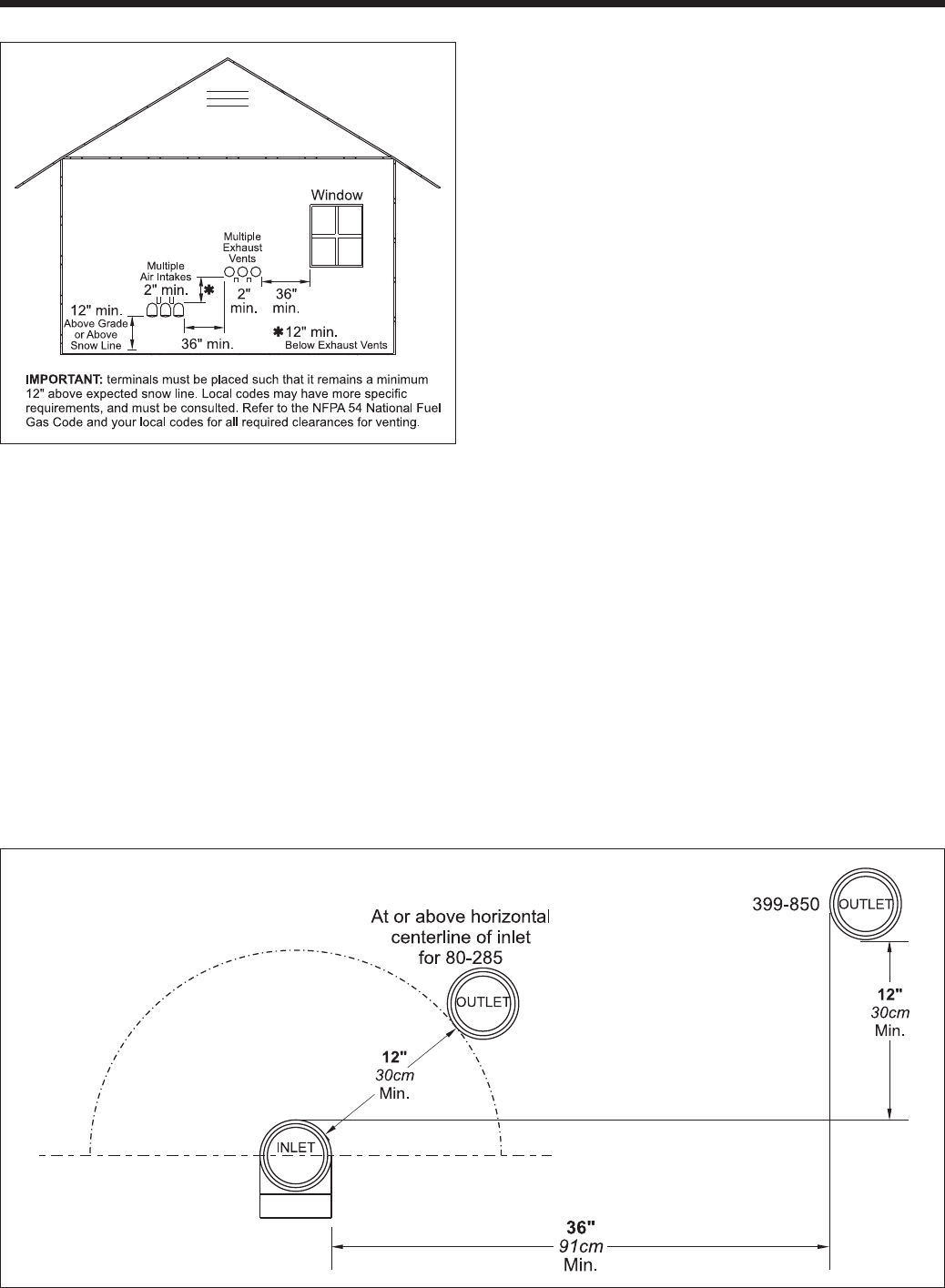
Brute Elite
Page 17
provided, however, that during said thirty (30) day
period, a battery operated carbon monoxide detector
with an alarm be installed.
2. Approved Carbon Monoxide Detectors
Each carbon monoxide detector shall comply with
NFPA 720 and be ANSI/UL 2034 listed and IAS
certified.
3. Signage
A metal or plastic identification plate shall be
permanently mounted to the exterior of the building
at a minimum height of eight (8) feet above grade
directly in line with the exhaust vent terminal for
horizontally vented gas fueled heating appliance or
equipment. The sign shall read, in print no less than
one-half (1/2) inch in size: "GAS VENT DI-
RECTLY BELOW, KEEP CLEAR OF ALL
OBSTRUCTIONS".
4. Inspection
The state or local gas inspector of the side-wall
horizontally vented gas fueled appliance shall not
approve the installation unless, upon inspection, the
inspector observes carbon monoxide detectors and
signage installed in accordance with the provisions
of 248 CMR 5.08(2)(a) 1-4.
3.4 Common Vent Test
NOTE: This section does not describe a method for
common venting Brute Elite units. It describes what
must be done when a unit is removed from a common
vent system. Brute Elite units require special vent
systems and fans for common vent. Contact the factory
if you have questions about common venting Brute Elite
units.
When an existing boiler is removed from a
common venting system, the common venting system is
likely to be too large for proper venting of the
appliances remaining connected to it.
At the time of removal of an existing boiler, the
following steps shall be followed with each appliance
remaining connected to the common venting system
placed in operation, while the other appliances
remaining connected to the common venting system are
not in operation.
1. Seal any unused openings in the common venting
system.
2. Visually inspect the venting system for proper size
and horizontal pitch and determine there is no
blockage or restriction, leakage, corrosion and other
deficiencies which could cause an unsafe condition.
Figure 14. Minimum Venting Distance.
Figure 13. Multiple Side-Wall Terminals, Air and Vent.



